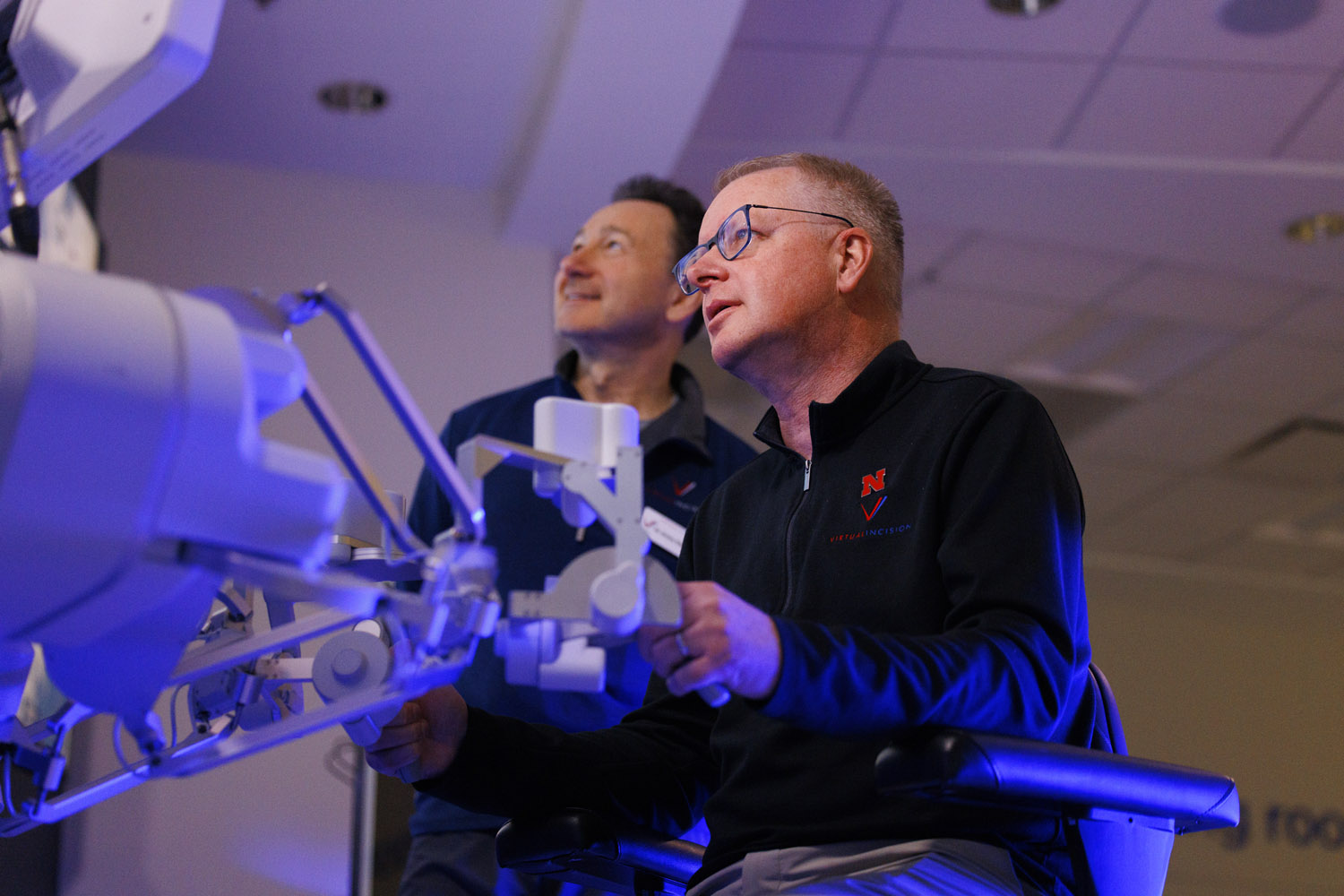Nebraska engineer Shane Farritor makes little robots.
It’s not that he and his team aren’t thinking big. In fact, their 2-pound robotic surgical arm, MIRA, proved its mettle in outer space this year, an unlikely journey for its 1-ton cousins.
MIRA — Miniaturized in vivo Robotic Assistant — also became the only small robotic-assisted surgical device to receive U.S. Food and Drug Administration approval.
To bring MIRA to fruition, Farritor and a Nebraska colleague co-founded Virtual Incision nearly 20 years ago. The growing company, based in Lincoln, employs more than 30 Nebraska graduates. To date, the company has attracted over $100 million in venture capital investment.
MIRA, the size of a forearm, has two arms small enough to perform surgery inside the body. Hospitals are already buying MIRA to assist surgeons in performing laparoscopic colectomies, for which it received FDA approval in February 2024. Resecting colons though tiny incisions improves outcomes and shortens hospital stays.
Ongoing research will soon expand MIRA’s surgical range, including hysterectomies and appendectomies.
Farritor sees additional potential for MIRA in telesurgery scenarios, when the surgeon is far from the patient.
“NASA and the [U.S.] Army have their own ideas of where surgery might happen, and a small robot like ours lends itself to being transportable and deployable,” said Farritor, Lederer Professor of Engineering.
In February 2024, MIRA traveled to the International Space Station, surviving the vibration and turbulence inside a microwave-size box. Despite a lag in response time, MIRA successfully simulated surgical techniques guided by surgeons in Lincoln.
“It went fantastically,” Farritor said. “We accomplished every one of our goals, everything we dreamed of doing.”
As NASA pushes farther into space, Farritor said he believes MIRA will be ready to fulfill a critical role in caring for astronauts in health emergencies.
For the military, MIRA’s size, simplicity and quick setup could help provide prompt surgical care to wounded soldiers, improving survival.
Farritor says he also sees potential closer to home. Telesurgery would improve care in rural areas worldwide, allowing specialists to directly assist local doctors.
“We’re on a strong mission here to improve patients’ lives,” he said.

















Additional content
- Video: Surgical robot in space
- News release: Farritor’s surgical robot headed to International Space Station
- News release: Nebraska-developed surgical robot receives FDA approval
- News release: Surgical robot passes space test with flying colors
Virtual Incision co-founders Shane Farritor (front) and Dr. Dmitry Oleynikov take turns operating the surgical robot.
